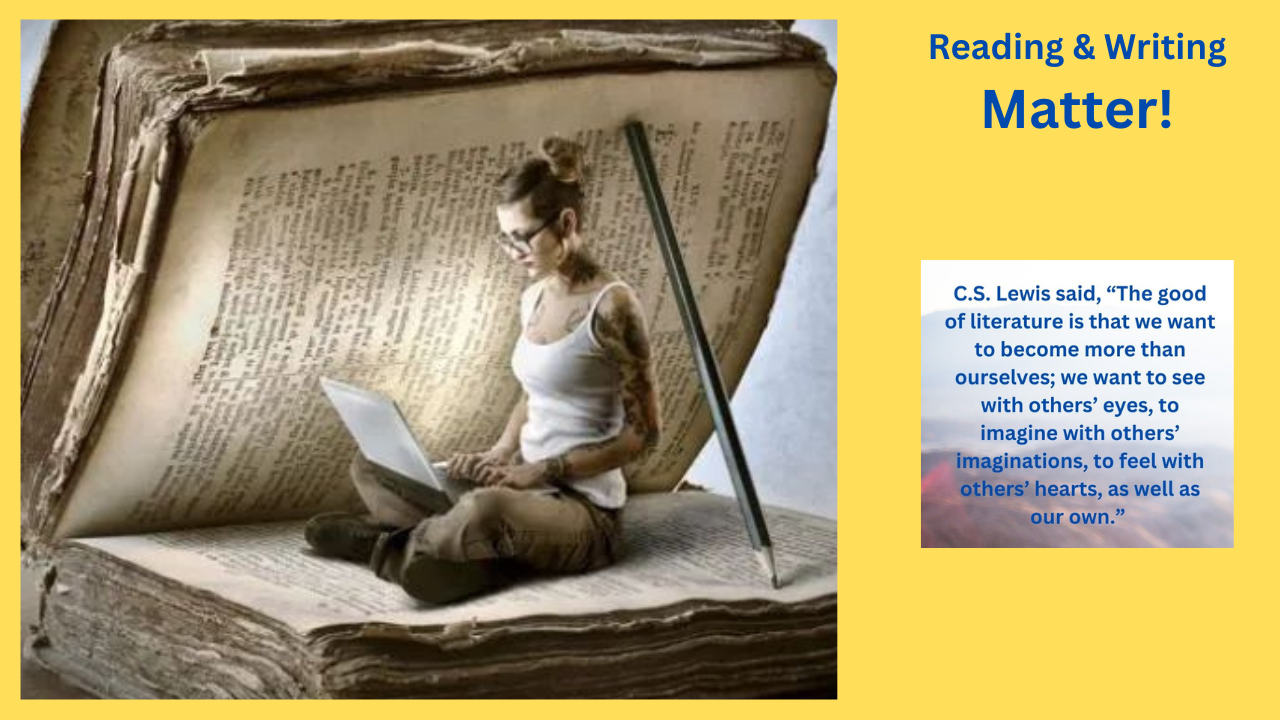Reading is never the same experience twice. Each time we return to a book, it reveals something new—reshaping how we see ourselves and the path we’ve taken. Literature expands our vision, giving us fresh eyes for the journey of life.
Read moreWriting a book requires several steps and the one that can be the hardest is the last one
With the recent release of my book, “Work Matters Insights and Strategies for Job Seekers in this Rapidly Changing Economy,” I have reflected on the most challenging part of writing and selling a book. I have listed items that qualify for this list.
Step one is pulling your thoughts and notes together. Most will find this a time-consuming step. A recent book I wrote at the time of this post was “Work Matters, Insights and Strategies for Job Seekers in this Rapidly Changing Economy,” This first step took over a year.
Editing, formatting, finding the right cover design, and production are challenging. Using KDP to produce the books requires learning their system. This is challenging.
Learning how to set up a book on Amazon so it has a chance of selling is very challenging, and it will take a long time and trial and error to figure this out.
Getting book reviews placed on Amazon is a very challenging process. People read the book and tell you they like it but don’t write a review.
Marketing the book, including all efforts to get people to buy the book, is the most important, and it isn’t easy. You can help by purchasing the book and writing a review if you have read this overview.
A conclusion from this Overview
The work required to market a book can far exceed all the other items listed in this overview.
Do Authors reflect their way of thinking and reading to their own readers? →
Do authors reflect their way of thinking and reading? It seems apparent that they would, and for that matter, that anyone would, but is a person who calls himself an author any different?
It becomes more apparent how much influence a person’s reading can create when we learn about their reading habits and books. I can see the results from my reading and past writing and the changes that have taken place in my writing. For example, I have often been asked if I have read all of the books in our house, which is about 2000, or if I have read all of those on the shelves in the library room, which is about 1500. I may have read nearly 1000 of them and some of them several times.
The alphabetical listing of books reviewed on this blog, “Brent M.. Jones - Connected Events Matter”, is around 400. I have tried not to include political books, books on religion, and many that I had read before 1998 on this site. I thought it best not to list books that might label me too close.
So yes, I have read many books, but compared to many people, maybe not so many. Stephen King said in an article that he had about 17,000 books in his library, and I’d bet he has read many of them.
My frequency of reading each year went up in 1998 when a friend told me the best book he had read was Louis L’Amour's "Education of a Wandering Man.” Before that, I had never read any of L’Amour’s books and had looked down on Western novels.
I read that book and was surprised at how much I learned from it. It was his autobiography and told of his travels as a young man and all the books he had read during that time. Wow! He read the most profound texts, and it just really surprised me. It inspired me. From that day forward, I kept closer tabs on what I was reading and started a list. Since then, I have read and liked some of Lamour’s Western novels.
When I consider the authors I admire, I can only guess what is in their libraries and how and why their reading habits have changed.
Einstein said that if you want your kids to be smart when they grow up, read them fairy tales. Pondering that opened another door in reading for me. I had yet to read a lot of fantasy or fiction.
I have to admit I now love reading Stephen King. He scares me at times, but I keep going back. With all of the fiction he has written, it is a little surprising that his book, "On Writing," is one of the best I have read on that subject. This book changed the way I saw his books. The writing skill of this author jumps out at you in all his books.
Can I remember what is in all of the books in that section? No, but I find that they come back just looking at them, and thinking about one, brings several others back.
Some authors are so familiar that they become labels for us. For example: Darwinian, Shakespearean, or Orwellian imply things that most understand. Harold Bloom is a literary critic that knows all the older authors very well and likely could indicate labels of influence for them all. My goal is to be able to do the same and, in that way, have them come alive and even talk to me.
C.S. Lewis said, “The good of literature is that we want to become more than ourselves; we want to see with others’ eyes, to imagine with others’ imaginations, to feel with others’ hearts, as well as our own.”
He also said we become a thousand men and yet remain ourselves. When it happens, you will feel renewed and reinvented.
What does seem clear is that reading opens our eyes, and we see ourselves and others more clearly.




